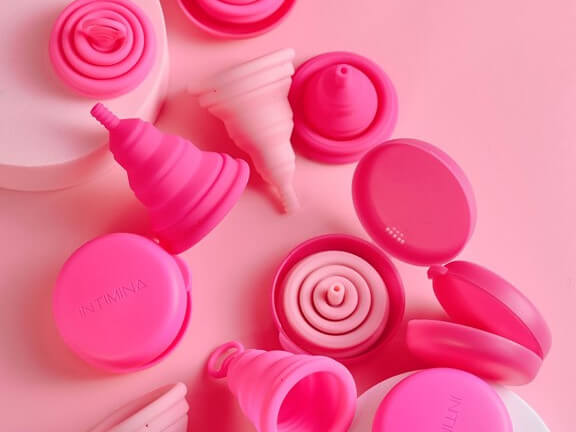

According to UNICEF, studies indicate that "stigma related to menstruation remains widespread" with "adolescents often feeling ashamed to openly discuss the topic."
Despite this reality, young would-be entrepreneur Czarina Maye Noche was undeterred.
In 2018, she decided to market and sell in the Philippines the Intimina brand of menstrual cups – a small, flexible cup made of medical-grade silicone – within a segment long dominated by pads and sanitary napkins. (A Statista report shows that revenue in the local feminine hygiene market is projected to reach US$7.25m in 2024)
A discovery abroad
It was during a visit to Australia in 2015 that Czarina Mae, a former travel blogger, first came across menstrual cups.
“I suddenly had my period, which prompted me to go to the grocery,” she recalls.
A long-time tampon user, Czarina Mae's curiosity was piqued when she saw one on the shelf. “Ano ito? (what is this?)” was her initial reaction, leading her to do more research on the product.
Surveying the market
Armed with additional knowledge, Czarina Mae then went to work in surveying the Philippine market upon her return, which remains unregulated and filled with both generic and branded menstrual cups, including a locally rebranded one.
Due to cost, it was right around this time too that she decided to ditch tampons for good in favor of menstrual cups which can be sterilized and reused.
“I was working as a social media manager, living on my own, and I could no longer afford to regularly buy tampons with my salary then,” she explains.
Czarina, the 'mompreneur'
Now married with a one-year-old son, Czarina Mae found herself bored with the routine of being a housewife.
“Bakit pa ako nag-aral? ”(Why did I have to go to school?) she wondered. “Need ko rumaket (I need to keep busy and do something productive). What if ibenta ko menstrual cups dito? (What if I sell menstrual cups here?)”
So, in 2018, with the support of her husband, who works in the insurance industry as angel investor, Czarina Mae began bringing in Intimina as a reseller.
At first she would rely on a friend to bring the cups here from Hong Kong, where Intimina's parent company, LELO of Sweden, maintains an office.
After this became unfeasible, they found a courier company that offered import services to entrepreneurs, with a P500,000 minimum, including door to door delivery. This not only made the process more convenient, but also resulted in cost savings.
Two years later, they finally applied for and received the license from Intimina to be one of the local distributors, which was timely as Czarina had just formally organized an OPC or one person corporation to professionalize her budding business.
With a Shopee store up and running and using one of the rooms in their three-bedroom unit as storage, Czarina Mae handled content creation as well as inventory management, sorting and packing, responsibilities she assumes until today to better manage operating costs. “But we now have a helper who does the household chores,” she says. “This allows me more time to devote to my business.”
Big Break
Realizing that selling online was not enough, Czarina Mae knew that having a presence in brick-and-mortar stores was key to growth.
At the height of the lockdowns, she emailed Mercury Drug with an offer to consign her products, but the drugstore giant was initially not receptive. They eventually responded, and in February 2021, she sent them samples.
Today, Intimina is available in 16 Mercury Drug branches in Metro Manila, with those near hospitals, such as the one across St. Luke's BGC, registering the most sales. But challenges remain.
“Marami pa ring rejections (We still get rejected),” Czarina Mae reveals.“Not all [branch] managers are receptive to our product which I deliver myself”. To further gain buyers attention, she also pays for counter space, the cost of which she says is still cheaper than buying online ads.
Banking on social media and KOLs
A believer in organic reach, Czarina Mae doesn't do online advertising.
She is, however, active on Tiktok where the Intimina Philippines account has 1,604 followers and 20.2K likes. Drawing on her multimedia arts background, she produces the content herself.
"I make the videos at night when everyone's in their rooms," she says.
Targeting the 18-25 and 25-35 age groups, her content is 50% devoted to female health and hygiene, aiming to educate viewers, many of whom remain uninformed.
Not giving up
Czarina Mae admits that her business has yet to turn a profit, as she reinvests revenues into replenishing stock and covering operational costs.
Despite this her husband, who put up the seed capital, remains hopeful and fully supportive.
"The problem really is that since menstrual cups can't be registered yet with the FDA as a medical device, the market is flooded with cheap products without any consideration for quality," she laments.
"Buyers will naturally go for the cheaper ones which can be unsafe and dangerous," she says.

Features Reporter
